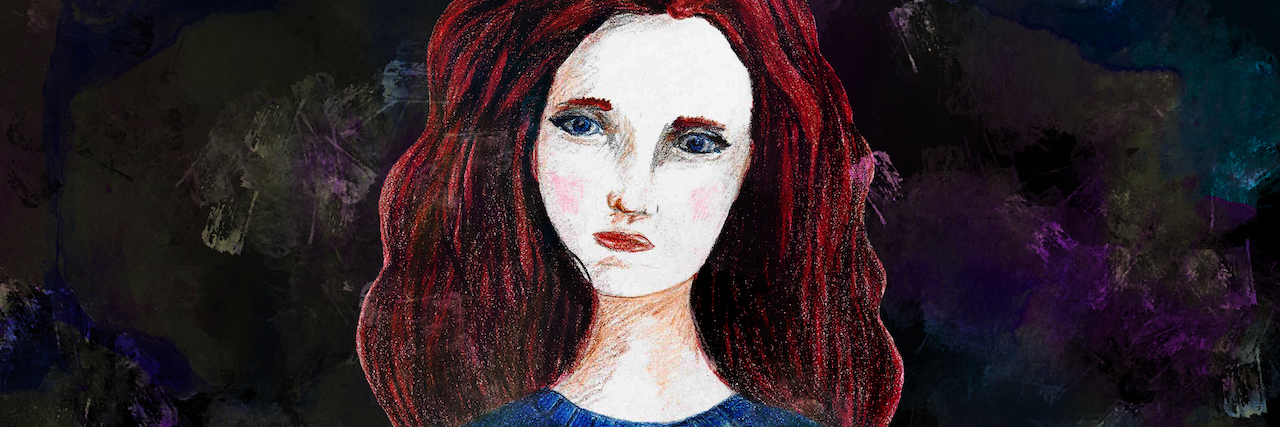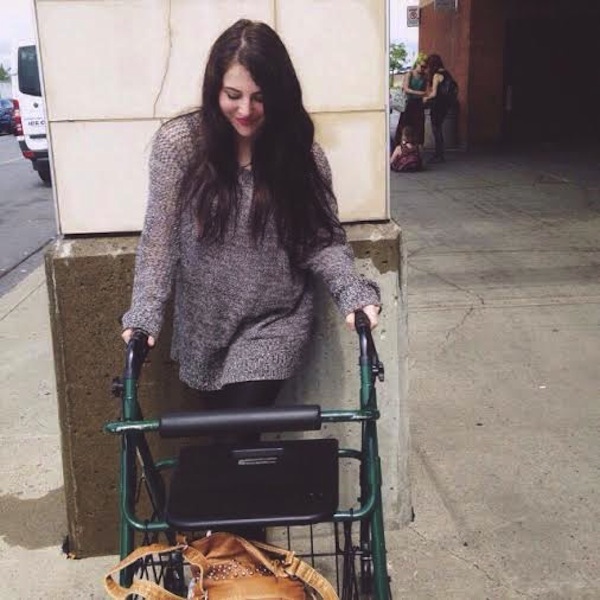Some patients follow a simple path to the diagnosis of a chronic illness. For example, my type 1 diabetes. I was 12 when my A1C, which provides an average of your blood sugars over the last three months, was abnormally high. We knew right then and there my pancreas had stopped producing insulin, and I was diagnosed as a diabetic. All it took was one vial of blood, and the mystery was solved.
Fast forward to now.
At the young age of 22, I’m dealing with a very different situation. Three years ago I fell ill with a slowly progressive mystery condition. First it caused me minor nuisances. Then it took me out of college. Then it left me mostly housebound, dependent on a walker.
Life undiagnosed is not fun.
There are friends who slowly disappear because they don’t understand why you can’t do things like you used to, or because they don’t take an undiagnosed illness seriously. There are doctors who brush you off because you’ve seen so many specialists you must be imagining things. When the tests they run come back with unclear answers, many medical professionals give up far too easily. I’ve had a doctor listen to me for all of a minute, and then tell me to stop looking for answers and just live my life. Although I left in tears, I didn’t listen to him. I knew something was wrong as scarier and scarier things began happening to me with no explanation. With the help of others who had gone years undiagnosed, I pushed on and found a geneticist who believed she knew what was going on.
Now I want to say, to the doctors who dismissed me:
There will be others like me. They’ll come to you desperate for answers. They will want to know why their body is failing them, or why they can no longer do the things they used to. They will be hopeful there is something you can do to bring them. You may not know what is plaguing their body, but have an open heart and mind. Imagine it was your son, or daughter, or sister or brother. If you don’t think you can help, maybe you know someone else who can. That small extra action may just change their life in the end. Don’t give up on them, they’re depending on you.
To the doctors who helped me:
Thank you. Thank you for listening carefully and thinking outside the box. Thank you for not judging me based on my history of depression. Thank you for joining my team in the fight for answers. Thank you for going above and beyond in your attempt to figure out what was going on with me. I’ve left many appointments in tears, but I left my appointments with you with a smile and feelings of hope. I wish everyone could see doctors like you.
To the friends who left:
Chronic illness is not a choice. We don’t want to cancel plans last minute, or put a damper on things. We want to have just as much fun as you do, but sometimes our bodies just don’t allow us. And let me tell you, that doesn’t mean we don’t know how to have fun. It just means you might have to adapt a little to make things more accessible for us. We feel plenty of guilt for making you adjust your plans, and we hate to feel like things revolve around us. Sometimes we just don’t have much of a choice, but that doesn’t change who we are.
To the friends who stayed:
Thank you for showing me unconditional love. Thank you for sticking by me through thick and through thin. Chronic illness gets very lonely, and it’s been much less lonely because of you. Your small gestures make a world of difference. You are the unsung heroes of this story.
To the undiagnosed:
Don’t give up on yourself. You might stay up at night wondering if you’re imagining things. You may begin to wonder if you’re just too sensitive. But you’re not. You have an illness. Don’t blame yourself. You didn’t choose this, and it’s not your fault your body is failing you. Nobody knows your body like you do. Just because your illness doesn’t have a name yet doesn’t mean it’s not there — the medical field is sometimes far less advanced than we think it is. There will be answers. The time you spend waiting for those answers might be some of the most painful days, but keep believing that the day will come, because it will. Reach out to people who also had trouble getting a diagnosis for their illness. Someone’s suggestion may just put you on the right path. The biggest miracles can come at the most random times.


